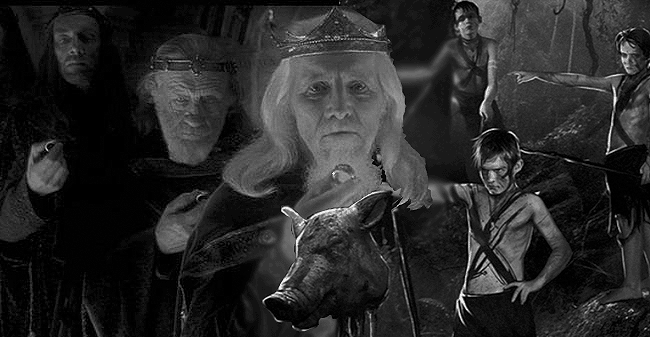
(The Library: Book Series Review)
Lord Of The Rings - The Eternal conflict, raging from one era to another. Transcending the lives of men, dwarves and even the long lives of elves. That eternal conflict between the forces of good and evil is examined aplenty in the works of J.R.R. Tolkien. Here, in this article, I wanted to review those books, all of them and tell you my thoughts and recommendations about them.
Pros
Classic of Fantasy Literature
The author invented many concepts here, including a fictitious elven language
A plentiful source of inspiration
The Hobbit is not too long and offers a good glimpse in the events of this world
Cons
Too long and the Unfinished Tales and Silmarillion were boring, most of the time

Published between 1937 and 1954 by J.R.R. Tolkien, this series of books is what made the author famous. In fact, those books have long represented the reference when it came to fantasy adventure lands and storytelling. The influence that J.R.R. Tolkien's vision and words had on countless other adaptations and cinematic universes. I still recall today seeing a giant puppet show when I was a kid. It was the story of the Lord of the Rings and it was frighteningly good. The puppets were often 2 or 3 meters tall and as such, they did impress the little 6 year old kid in me at the time. One such giant puppet was a giant black bird or a bat that scooped over our heads during the presentation.
Many years later, I would purchase the entire collection and read it. I was disappointed to be honest. I guess much of what I read had to be anticipated. Why did I read Unfinished Tales when the title specifies that they were unfinished? Because I like to go all in. If I were to read The Lord of the Rings without having read The Silmarillion, I felt I would be missing something.
In retrospect, I would have had more time to read more interesting stories had I skipped The Silmarillion and Unfinished Tales. I don't recommend you to read those two, unless you are seeking total knowledge about the myth and the legends behind this story. I do recommend reading The Lord of the Rings, all three tomes and also I strongly recommend reading The Hobbit. Perhaps it is more accessible being a single short book but also perhaps because it brings all the concepts from the book in a more compact format. To be precise, here is a breakdown of the pages in those novels:
The Hobbit: 310 pages
The Silmarillion: 443 pages
The Return of the King: 554 pages
Unfinished Tales: 611 pages
The Two Towers: 439 pages
The Fellowship of the Ring: 535 pages
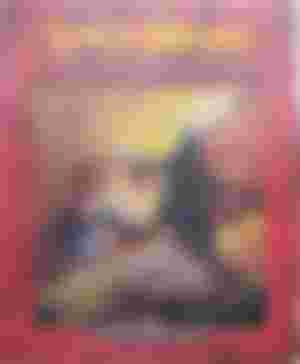
(Above, the cover illustration for the Adventure Game set in Middle Earth. Copyright of all subsequent material for this game belongs to Tolkien Entreprises and I.C.E. publishing, 1991)
Unfinished Tales
As many have undoubtedly commented before, Unfinished Tales is a collection of unfinished stories put together after Tolkien's passing away. The reason why I did not like this book very much is because it did feel like just collections of stories that mostly always revolve around the same idea: It is a battle for the fate of Middle Earth, stuck between the forces of good in the races of Man, Elves and Dwarves and evil on the other side, personified by the races of monsters and by Morgoth the Dark Lord himself or Sauron his lieutenant. Where Unfinished Tales feel like the title describes it, it does not establish any specific cannon on the story that I can recall. As such, it is unlike The Silmarillion, which does establish some important concepts for the books that followed.

The Silmarillion
In this book, we learn of the oldest mysteries that surround this world: The jewels and the rings of old. Because the Silmarilli were three perfect jewels, fashioned by Fëanor, most gifted of the Elves. Some of those artefacts of later ages, notably the One Ring, were often created not by men but by elves or by Sauron or Morgoth himself and had legendary powers which sets apart men from gods.
Throughout the novel, we examine the creation of those items of power and their destiny as they get lost, change hands or are used to fight one side or the other. As mentioned on the back face of the novel:
"When the first Dark Lord, Morgoth, stole the jewels for his own end, Fëanor and his kindred took up arms and waged a long and terrible war to recover them. This is the story of their rebellion against the gods and the history of the heroic First Age of Middle-earth."
Again, as with Unfinished Tales, I here often felt like I was losing my time reading this. It felt like endless back and forth with crusades led again the Dark Lord in the North and defeats or victories that rang hollow. The Dark Lord is not Sauron, who was just a lieutenant, but it is an even more powerful being by the name of Morgoth.
But don't get me wrong, I still appreciated the novel. I wanted to get immersed in that world and to know the ins and outs. However, to once again provide more reasons for my criticism, consider that most of it is written in the past tense. Also, the amount of proper names to remember is staggering. It is both a strength and a weakness, in my opinion. It adds richness but it also makes reading it very heavy. Will you flip to the end of the novel to look at the map every time a river or a mountain is mentioned by name to see what it refers to? If you don't, you might start to get lost a little bit. Here is an extract to illustrate what I am saying:
"And following Sirion from north to south there lay upon the right hand in West Beleriand the Forest of Brethil between Sirion and Teiglin, and then the realm of Nargothrond, between Teiglin and Narog. And the River Narog rose in the falls of Ivrin in the southern face of Dor-lómin, and flowed some eighty leagues ere he joined Sirion in Nan-tathren, the Land of Willows. South of Nan-tathren was a region of meads filled with many flowers, where few folk dwelt; and beyond lay the marshes and isles of reed about the mouths of Sirion, and the sands of his delta empty of all living things save birds of the sea." J.R.R. Tolkien, The Silmarillion, Chapter 14.
That paragraph illustrates what I mean when I say that I found it boring. Maybe boring is the wrong word? Heavy to read might be more appropriate. But again, this does not remove any grandeur from the novel! Much to the contrary; it is just not an easy read. It remains an ever-giving source of inspiration. Some of the conflicts are epic. The legends that surround ancient lands, mythical good and evil and artefacts of old are at their best here. But it remains a perspective from a high-level point of view.
What is missing here, as I have critiqued before regarding Reminiscences of a Stock Operator, is emotional attachment to the characters. You will not get this here as the story is told from a level that is above those of individual lives. Sure we do examine the specifics of certain individuals but overall, it feels much more like a strategic overview rather than a tactical overview of the scene. What I am trying to say is that it is too general and focuses on big battles and movements of populations instead of focusing on the minutiae details of everyday life in the world of Middle Earth.
This is probably something that Tolkien knew very well. I regard The Silmarillion and Unfinished Tales as compasses and high level maps to sort out what happens in this world. To get the first person perspective, you will need to delve deeper into the mythos and that can be done with the following entries in the series.

The Lord of the Rings
No doubt my fellow readers part of the Fellowship of The Read will have seen the film adaptations by Peter Jackson? As such, a description of the story or of the characters feels unnecessary. I should still mention that I am reviewing 3 entire books in this paragraph: The Fellowship of the Ring, The Two Towers and The Return of the King.
As I wrote above, the emotional attachment to the characters that was missing in Unfinished Tales and in The Silmarillion are present here. Tolkien casts a wide array of characters and his ability at story-telling is perhaps at its best in those novels.
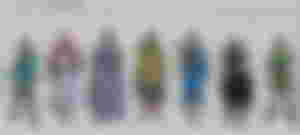
Overall however, the story doesn't evolve much in those books. We do follow the events surrounding the One Ring however, this remains well included in the overall conflict opposing the forces of good to the forces of evil.

I have good memories of The Lord of the Rings and I recommend my readers to read it also. Or, if you are not a big reader (in which case you might abandon it halfway) perhaps watch the movies to get a good feel of the medieval fantastic environment and then proceed to read The Hobbit.



(Above, the 3 cover illustrations by J.R.R. Tolkien for each of the novels in The Lord of the Rings)
The Hobbit
It was this little creature that inhabits Hobbitton that would be my initial encounter in this amazing world. I had to read this book back in school but at the time I didn't feel like. It is only years later that I bought myself a nicer copy, along with all novels of the series, and read it.
I cannot say it is an amazing read. I have read way too much other good material to place The Hobbit as very high on my list. But it is definitely a recommendation. From the emotional attachment to the characters, to how Tolkien spends time crafting their world full of details and lineage.
As I said in the Pros and Cons above, one of the strong points of J.R.R. Tolkien is that he inspired generations of creators after him. I was inspired by him and his works. Even today the games that come out are often taking parts straight out of his works without even noticing it. So many creatures were invented in his novels and given life and personality.

War and Sauron
The review would not be complete if I omitted to comment on the overall theme behind the works discussed here. What permeates this world beyond anything else is a permanent war. The forces of evil are always growing stronger and the forces of light are always on the reactionary side. Obviously, power corrupts and the hearts of men and dwarves and even those of the elves can be corrupted. The One Ring was the ring to bring all other races of Middle Earth under Sauron's rule "...and in the Darkness bind them". For Sauron wanted a world of his own. He felt dispossessed by the Creator God. Parallels to real life religions are not just coincidences.
Let us not forget the grand master behind Sauron, however: Morgoth. Both in their own sense incarnate evil in some form. The stories that surround them of often of power, of cult and of domination by desire or want to possess. Also take note of Sauron's all-seeing Eye for it is a recurring theme in fiction. More on that topic another time.
It is this eternal struggle that we face today, here on Earth. Here today however, the enemy does not have physical form. It is dispersed an immaterial. Much more like a hydra where even if a head gets cut off, two more will grow. The evil present in our world today also had artefacts of destruction and control as the Rings of old Middle Earth. Those artefacts nowadays are called "Air Superiority Fighters", "Inter-Continental Ballistic Missiles" or with more poetic names such as "Little Boy". Speaking of little boys, you may also enjoy the much shorter Lord of the Flies, reviewed by The Library today. We still must fight in order to insure that this world does not end up enslaved and bound to the wills of greed, corruption and evil.
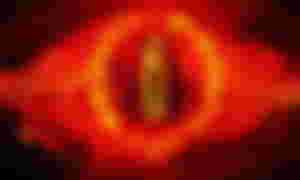
Thanks for reading!
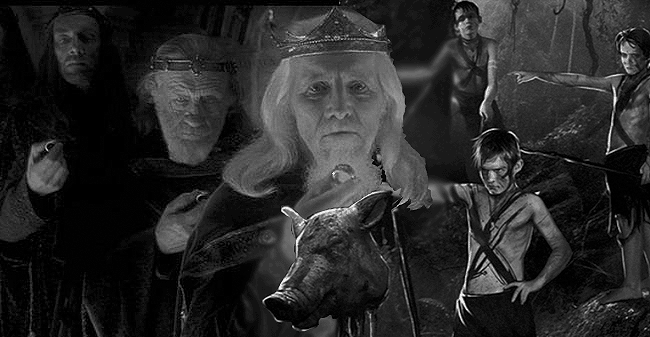

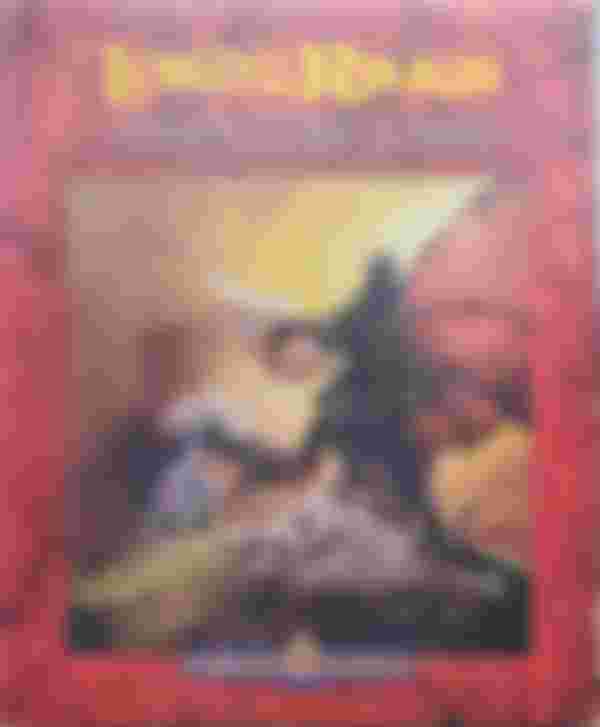


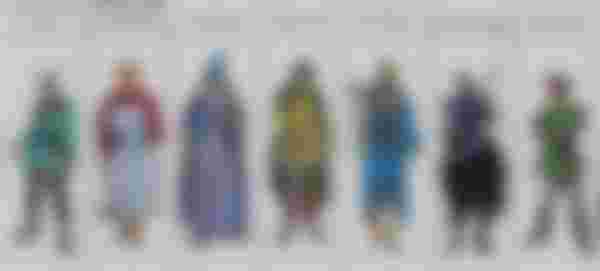
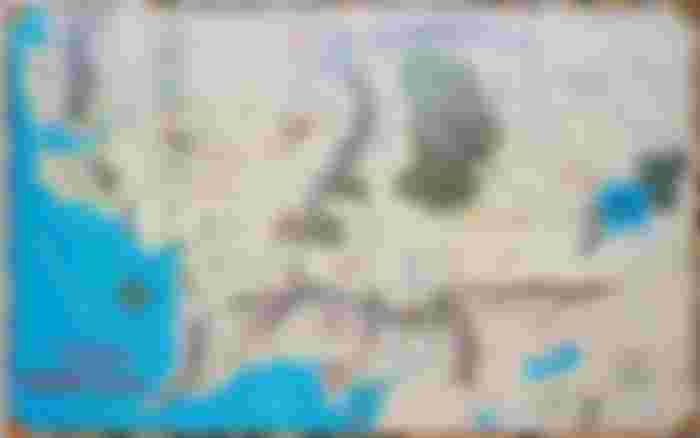




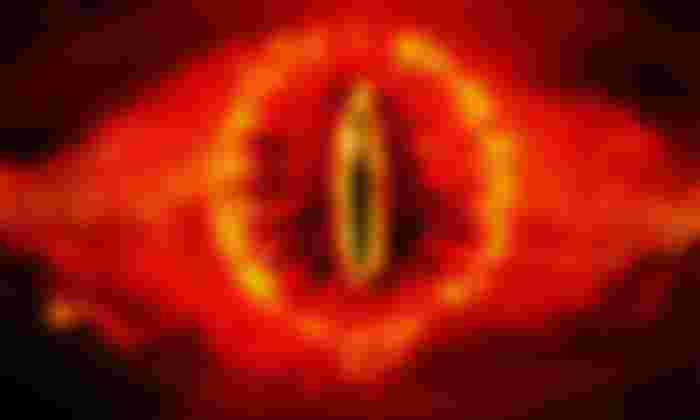
I have edited the article, to add more nuance to the criticism of the Silmarillion, coupled with stats about the number of pages and also with some quotes.
Overall, my article is not a criticism, more a review of the entire series. I cannot write 100 pages in this article alone. I have tried to be honest with how I felt while also being complete. Notice that the article does not mention Gandalf, Aragorn, Frodo or Bilbo themselves. I have chosen to stay relatively high-level in this review. Thanks for reading!